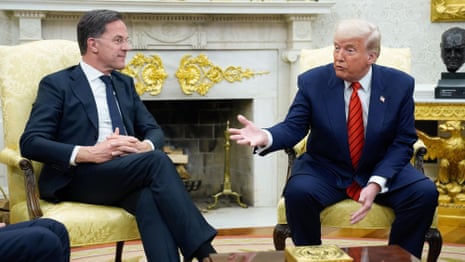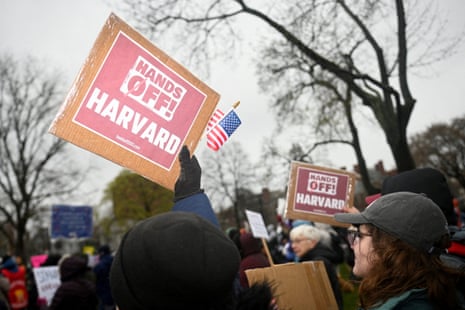|
US begins inquiry into pharmaceutical and chip imports in bid to impose tariffs | Trump administration The Trump administration is kicking off investigations into imports of pharmaceuticals and semiconductors as part of a bid to impose tariffs on both sectors on national security grounds, notices posted to the Federal Register on Monday showed. The filings scheduled to be published on Wednesday set a 21-day deadline from that date for the submission of public comment on the issue and indicate the administration intends to pursue the levies under authority granted by the Trade Expansion Act of 1962. Such inquiries need to be completed within 270 days after being announced. The administration of Donald Trump has started 232 investigations into imports of copper and lumber, and inquiries completed in the US president’s first term formed the basis for tariffs rolled out since his return to the White House in January on steel and aluminum and on the auto industry. The US began collecting 10% tariffs on imports on 5 April. Pharmaceuticals and semiconductors are exempt from those duties, but Trump has said they will face separate tariffs. Trump said on Sunday he would be announcing a tariff rate on imported semiconductors over the next week, adding that there would be flexibility with some companies in the sector. The US relies heavily on chips imported from Taiwan, something then president Joe Biden sought to reverse by granting billions in Chips Act awards to lure chipmakers to expand production in the United States. The investigation announced on Monday will include both pharmaceuticals and pharmaceutical ingredients as well as other derivative products, the notice showed. Drugmakers have argued that tariffs could increase the chance of shortages and reduce access for patients. Still, Trump has pushed for the fees, arguing that the US needs more drug manufacturing so it does not have to rely on other countries for its supply of medicines. Companies in the industry have lobbied Trump to phase in tariffs on imported pharmaceutical products in hopes of reducing the sting from the charges and to allow time to shift manufacturing. Large drugmakers have global manufacturing footprints, mainly in the US, Europe and Asia, and moving more production to the US involves a major commitment of resources and could take years. Source link Posted: 2025-04-15 01:05:27 |
It was 'ludicrous' to think King Charles and Queen Camilla could be married for 20 years | Royal | News
|
|
Greenland’s likely new prime minister rejects Trump takeover efforts | Greenland
|
|
Obama condemns Trump’s $2.3bn Harvard funding freeze as ‘unlawful and ham-handed’ – US politics live | US news
|
|
Giro d’Italia: battle for overall title in mountains on stage 20 – live | Giro d'Italia
|
|
Cocaine, corruption and bribes: the German port under siege by Europe’s criminal drug gangs | Drugs trade
|
|
Heathrow airport closed: more than 100 flights diverted after substation fire causes power outage - live | Heathrow airport
|
|
‘You sold it – now recycle it’: the protesters mailing worn-out clothes to the shops they bought them from | Ethical and green living
|
|
Manchester fire LIVE: Smoke seen across Wythanshaw after 'explosions' reported | UK | News
|
|


